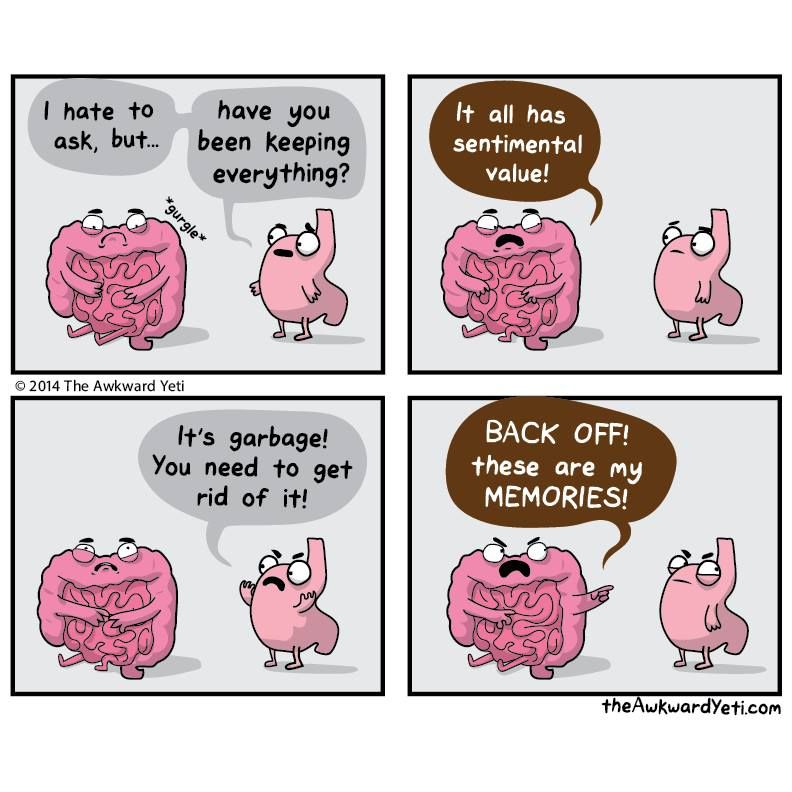I recently went to my gastroenterologist for a consulting visit before my scheduled procedure in April and I was so honestly happy with the outcomes.
When I began the process of seeking out treatment for my stomach issues (which are related directly to my anxiety, have been persisting for years, and likely were made more difficult due to my ED behaviors), I was really nervous and didn’t know what to expect. A family history of GI-related illnesses (Crohn’s, celiac disease) runs in my family, and I had been experiencing symptoms for the past few months that were indicative of something needing to be done.

At my first appointment, the standard thing went on–conversation about symptoms, family history with the help of my mom who came with me to the appointment, but a minimal discussion of my mental health conditions and my history of an eating disorder. I got a few tests spread out over those next few months–an MRI that came back normal, despite not feeling normal and often having nausea and other issues.
So I scheduled an appointment to meet with my doctor during a week off and I went alone to discuss the unaddressed issues of my eating disordered behavior in a more complete way.
She didn’t take my weight at all, validated my mental health symptoms as a likely cause of my gastrointestinal issues, and gave me a recommendation for medical food that would help.
We discussed Overeaters Anonymous and the fact that it’s unnecessary and unhelpful for me (something that doctors, in my experience, never feel, especially when fat patients are sitting in front of them), discussed my family’s relationship with my disordered behavior and my lack of ED treatment (due to weight stigma and denial that what I had was an eating disorder at all in the first place), and she reviewed my previous tests and came to the conclusion that my ED has had no long-term adverse affects on my body.
It is likely that I do have IBS, and she noted that I may benefit from biofeedback so that I can get better at aligning my hunger and fullness signals with my executive functioning.
Because after a few years of binge-purge cycles, I learned how to recover, but my anxiety is a persistent issue. I still struggle with executive functioning, and sometimes will get so busy or bad at time management or just be too anxious to eat, and my hunger signals will go ignored and eventually shut off until they are no longer in my awareness.

It sometimes would result in me skipping meals for hours, and bingeing once I can no longer ignore the ghrelin entering my stomach and telling me to eat, causing me to double or triple up on food, as a way of answering for my missed meals.
I left this appointment having articulated all of this to my doctor, and feeling heard and validated in that understanding of my behavior as it relates to my GI function. And none of it was attributed to my fatness, I was not asked to answer for my weight or reduce it, and I am so grateful for that.
This comprehensive understanding and being able to talk to a doctor about my eating disorder history and be understood and not stigmatized for my weight all at once was probably the best experience I’ve ever had with a medical professional since realizing that I needed to recover from BED/OSFED.
It is difficult enough to be a fat patient in any medical office, but when that doctor visit has to do directly with your eating behavior and the potential for weight stigma is higher than normal, bracing yourself for both subtle and not-so-subtle fatphobia is stressful and traumatic.
I didn’t think finding a doctor who was understanding of my history of eating disorders across the spectrum WHILE also actively not being fatphobic would happen for me. These small things add up for us folks who deal with weight bias from virtually all other corners of life in this world. Thank you so much, Dr. S!

